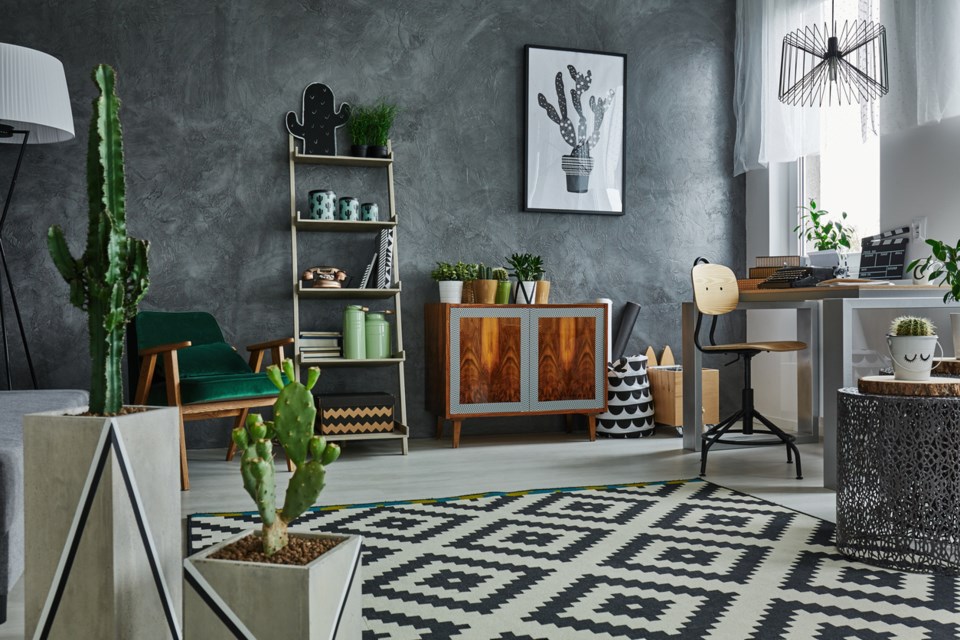When styling the perfect room, the details don’t stop with furnishings and hard finishes. For most designers, adding literal life to a space is essential and choosing the right greenery is just as important as the right piece of art. And while we work on an aesthetic level and would love to choose plants simply by how they look, there are other considerations – light requirements, temperature limits, potential growth and maintenance – to factor in.
This week I’ve shared my own go-tos for indoor plants and weighed in with a few local creatives on what their favourite houseplant to work with is, and why.
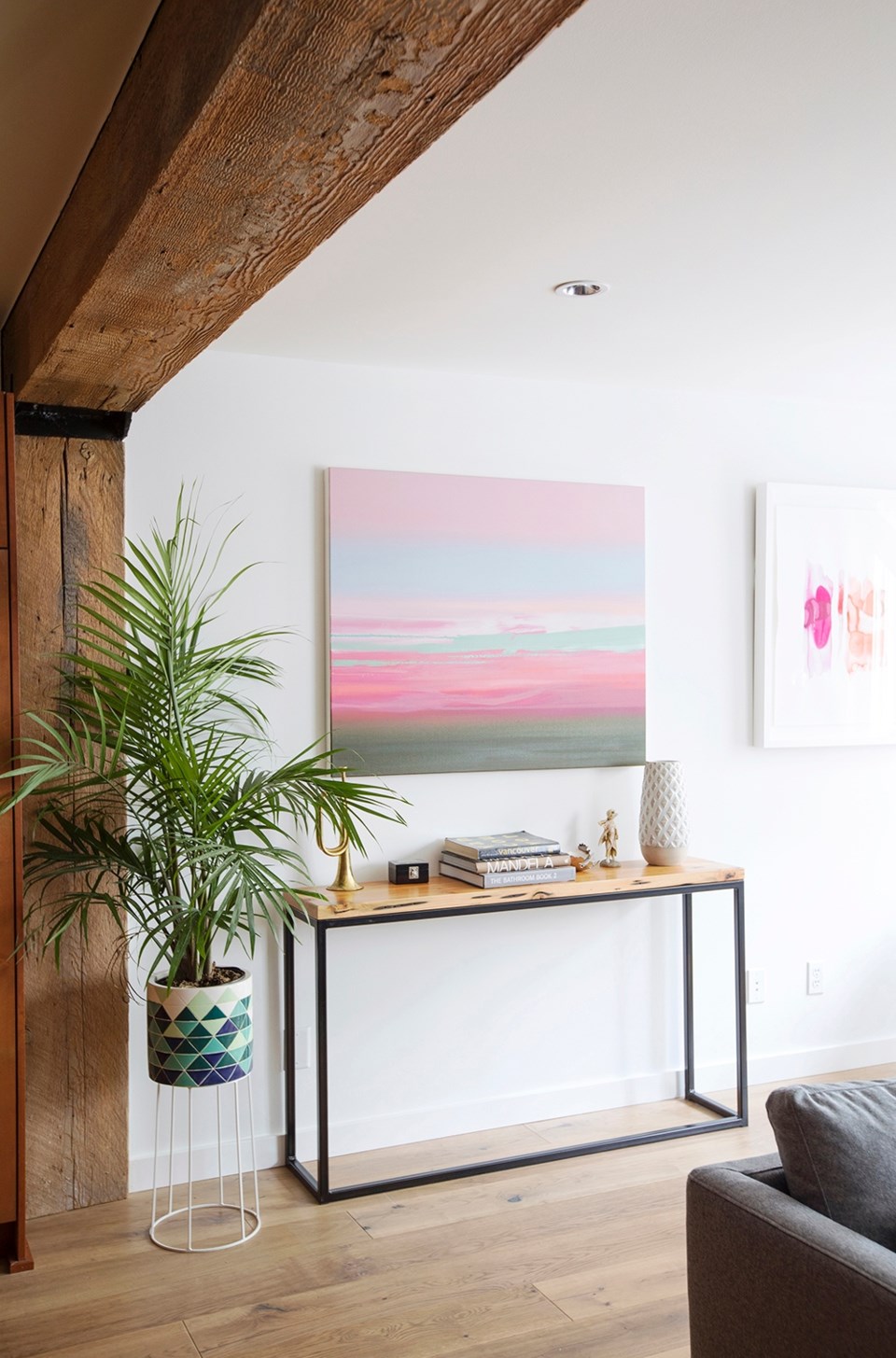
Rachel Harrison of RoomCraft Design
The (indoor) palm
“Palms are a great way to bring the outdoors in. They add a tropical vibe to even the most urban home, which sets a relaxed and beachy tone,” Harrison explains. “I loved using the butterfly palm because I find it also keeps a visual reference of warmer destinations for future getaways and daydreams.”
Light requirements: A bright room but no direct sunlight (they can actually get a sunburn!)
Watering: Moderate, allow the top soil to become dry but do not overwater
Size: Butterfly palms (a.k.a areca palms) can grow up to eight feet indoors, so are an ideal space filler.
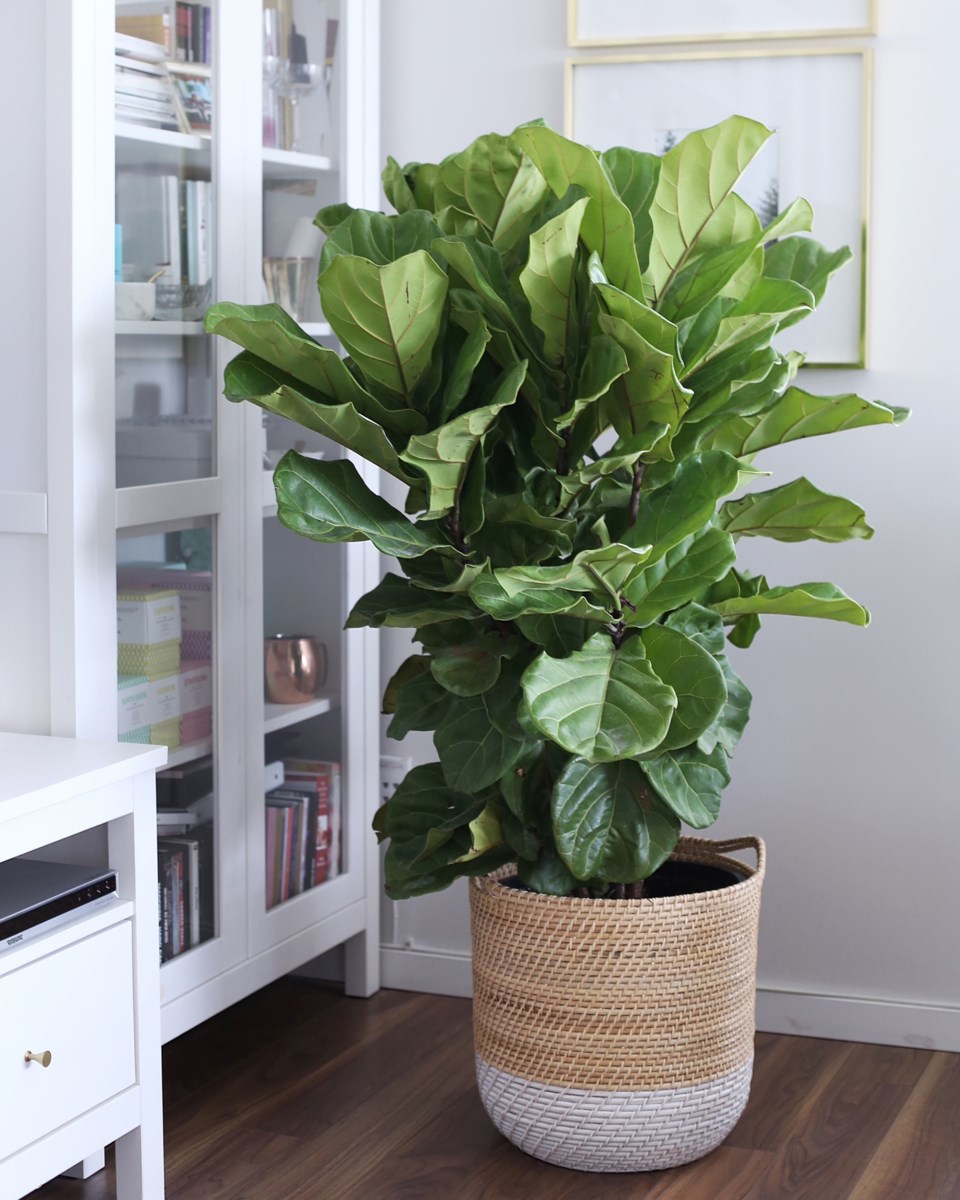
Erin Sousa of Sparkle Media
The fiddle leaf fig
“I love the freshness that my fiddle leaf fig brings into my living room – it’s the perfect shape and size to fill an empty corner, plus, it’s super modern and on trend.”
Light requirements: A bright room with minimal direct light (early morning direct light only).
Watering: Moderate, allow the top soil to become dry but do not overwater; water less during the winter months.
Size: Another great focal point for any space, the fiddle leaf can grow up to nine feet in height.
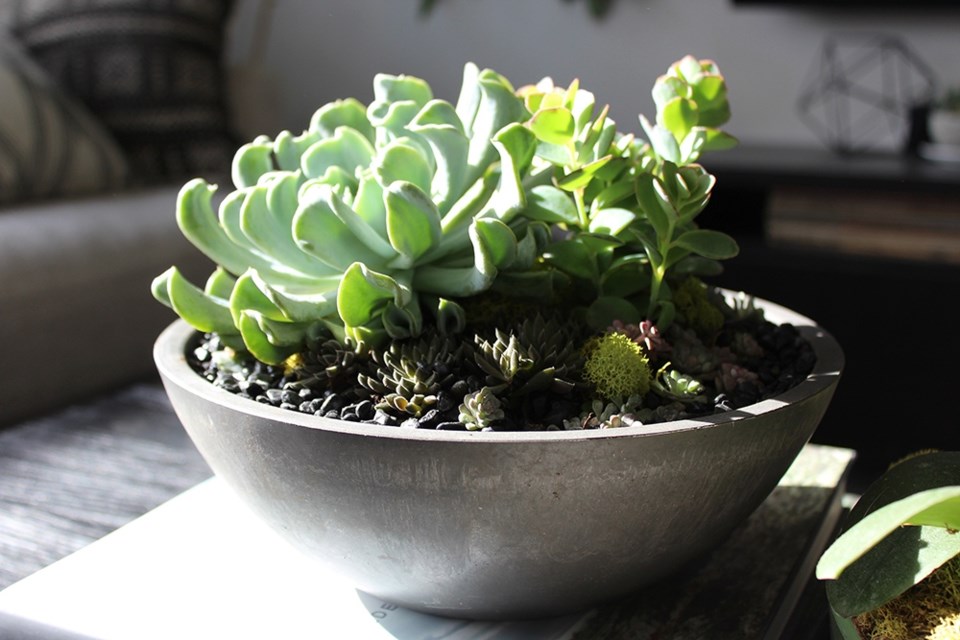
Joy Leimanis of Spade & Pointer
Succulents
“Succulents are a stylish and easy way to add plant life to any home,” Leimanis explains. As a greenery designer, she shares why these little plants are so versatile: “I love working with succulents not only for their unique appearance, but also for ease of care. They thrive on a sunny windowsill where other plants may suffer (as they would dry out too fast), require little water, so they are low maintenance, and they are less attractive to pests than many traditional house plants. Succulents are available in an array of colours, shapes and textures which can make for uniquely attractive planter combinations which add visual interest to any decor.”
Light requirements: Bright window spots are best, especially south or west facing.
Watering: light. Allow the soil to dry between waterings.
Size: Varies by type.
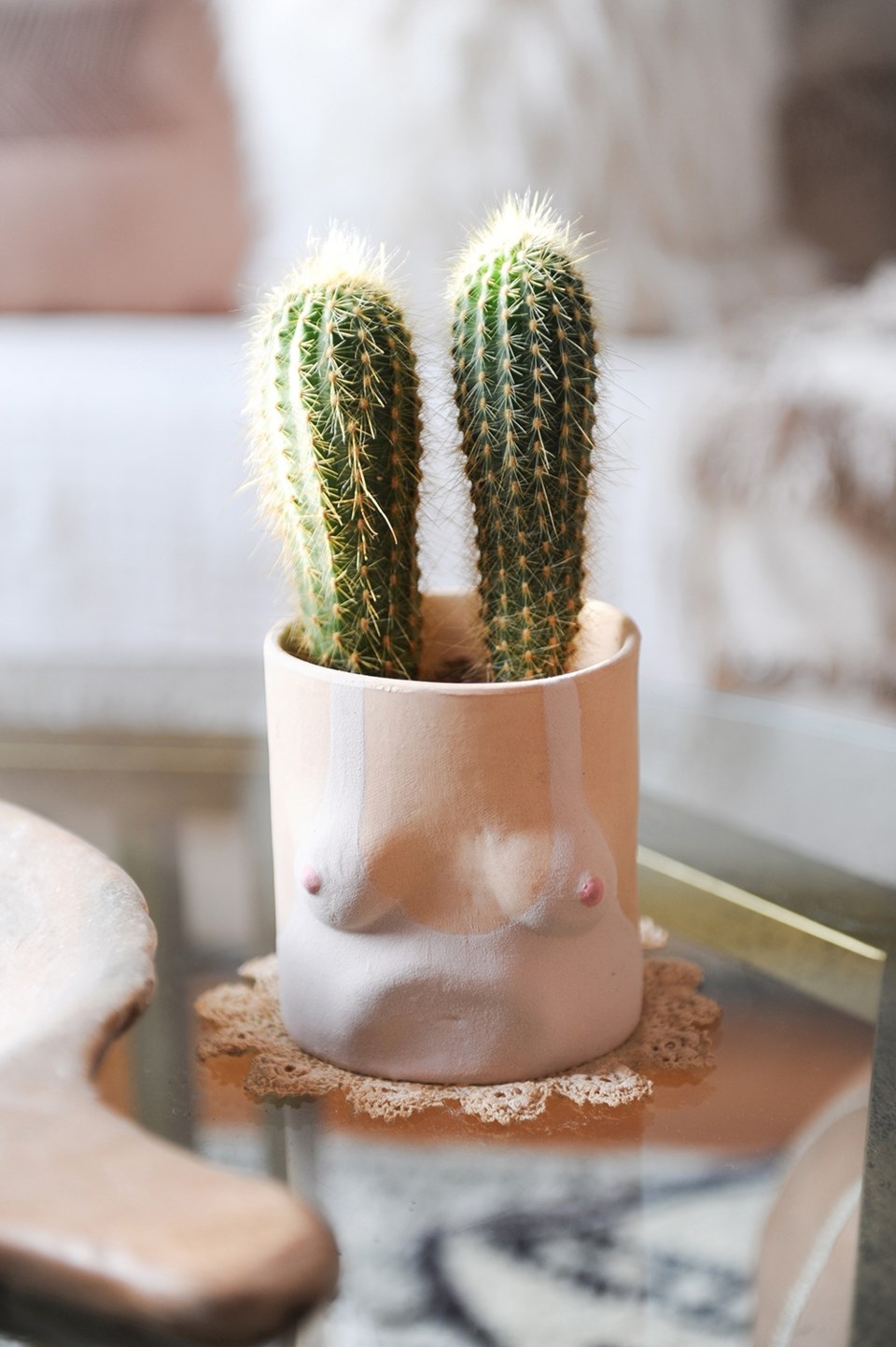
Jenn's picks
The cactus
I feel like in many ways the cactus is my spirit plant – I’m a sun-seeker, I love hot, dry temperatures and am averse to the rain. My personal aesthetic currently has a very California desert vibe going on, so adding a variety of cacti really helps set that tone. The biggest bonus? These plants are almost impossible to kill. Even during the summer months they require very little water, and even less so while they are dormant in the winter.
Light requirements: Your sunniest spot will do nicely – remember, these are desert plants. They can handle direct sunlight, but it’s best to turn the pot every so often so that all sides of the plant are receiving equal light (and to avoid burning one spot).
Watering: Very minimal regular watering through the warmer months, and less watering during with winter allows the plant to go dormant while it’s cool. Overwatering quickly causes rot within cacti.
Size: Varies by type.
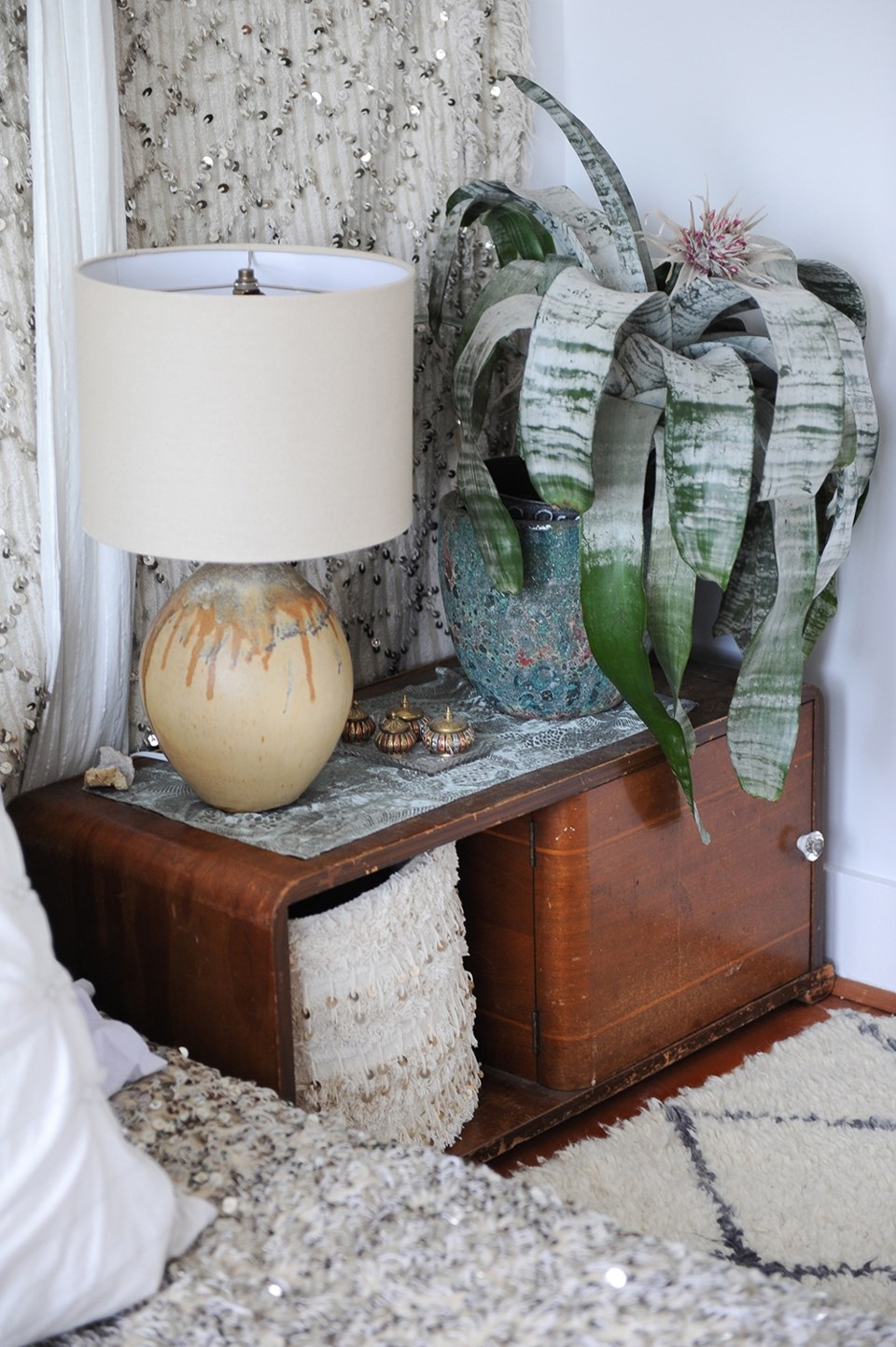
The bromeliad
Design is all about texture, layers and details. That’s why I love using Bromeliads – they offer a lot of layers and organic movement, which makes each one a little different. With the larger varieties like this urn plant [pictured], I enjoy the presence they bring to a room. They feel somehow elegant and ominous at the same time. I find them a little tricky to get to flower, but once they do, it’s super cool and again, adds a whole new element of texture.
Light requirements: Very bright rooms with no direct sunlight.
Watering: These are unique because you water the ‘vases’ created by the leaves (replace every 2-3 weeks) and only water the soil when it is dry to the touch.
Size: Typically grows up to 18 inches in height (although this very mature urn plant has exceeded that).
